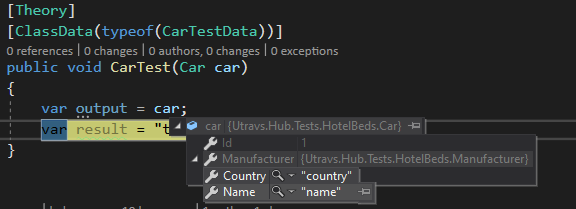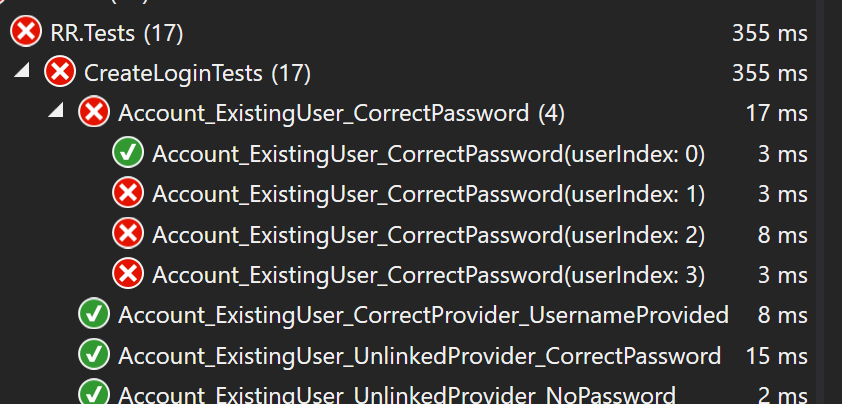There are many xxxxData attributes in XUnit. Check out for example the MemberData attribute.
You can implement a property that returns IEnumerable<object[]>. Each object[] that this method generates will be then "unpacked" as a parameters for a single call to your [Theory] method.
See i.e. these examples from here
Here are some examples, just for a quick glance.
MemberData Example: just here at hand
public class StringTests2
{
[Theory, MemberData(nameof(SplitCountData))]
public void SplitCount(string input, int expectedCount)
{
var actualCount = input.Split(' ').Count();
Assert.Equal(expectedCount, actualCount);
}
public static IEnumerable<object[]> SplitCountData =>
new List<object[]>
{
new object[] { "xUnit", 1 },
new object[] { "is fun", 2 },
new object[] { "to test with", 3 }
};
}
XUnit < 2.0: Another option is ClassData, which works the same, but allows to easily share the 'generators' between tests in different classes/namespaces, and also separates the 'data generators' from the actual test methods.
ClassData Example
public class StringTests3
{
[Theory, ClassData(typeof(IndexOfData))]
public void IndexOf(string input, char letter, int expected)
{
var actual = input.IndexOf(letter);
Assert.Equal(expected, actual);
}
}
public class IndexOfData : IEnumerable<object[]>
{
private readonly List<object[]> _data = new List<object[]>
{
new object[] { "hello world", 'w', 6 },
new object[] { "goodnight moon", 'w', -1 }
};
public IEnumerator<object[]> GetEnumerator()
{ return _data.GetEnumerator(); }
IEnumerator IEnumerable.GetEnumerator()
{ return GetEnumerator(); }
}
XUnit >= 2.0: Instead of ClassData, now there's an 'overload' of [MemberData] that allows to use static members from other classes. Examples below have been updated to use it, since XUnit < 2.x is pretty ancient now.
Another option is ClassData, which works the same, but allows to easily share the 'generators' between tests in different classes/namespaces, and also separates the 'data generators' from the actual test methods.
MemberData Example: look there to another type
public class StringTests3
{
[Theory, MemberData(nameof(IndexOfData.SplitCountData), MemberType = typeof(IndexOfData))]
public void IndexOf(string input, char letter, int expected)
{
var actual = input.IndexOf(letter);
Assert.Equal(expected, actual);
}
}
public class IndexOfData : IEnumerable<object[]>
{
public static IEnumerable<object[]> SplitCountData =>
new List<object[]>
{
new object[] { "hello world", 'w', 6 },
new object[] { "goodnight moon", 'w', -1 }
};
}
Disclaimer :)
Last time checked @20210903 with dotnetfiddle.net on C# 5.0 and xunit 2.4.1 .. and failed. I couldn't mix-in a test-runner into that fiddle. But at least it compiled fine. Note that this was originally written years ago, things changed a little. I fixed them according to my hunch and comments. So.. it may contain inobvious typos, otherwise obvious bugs that would instantly pop up at runtime, and traces of milk & nuts.


